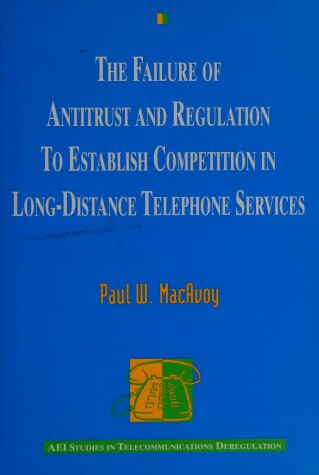AEI Studies in Telecommunications Deregulation
1 total work
This text argues that governmental antitrust actions and regulatory activities have failed to bring true competition to long-distance telephone services in the USA, to the detriment of consumers seeking prices in line with the costs of providing those services. Although other long-distance telephone companies have emerged since the 1984 antitrust decree forced the monopoly AT&T to divide into smaller independent companies, the author shows how the three major long-distance telephone companies - AT&T, MCI and Sprint - have used the regulatory system to tacitly collude in setting prices and to bar entry into the market of potentially competitive alternative sources of services. The consequence, he claims, is an excessive cost to long-distance telephone customers conservatively estimated in the tens of millions of dollars.
